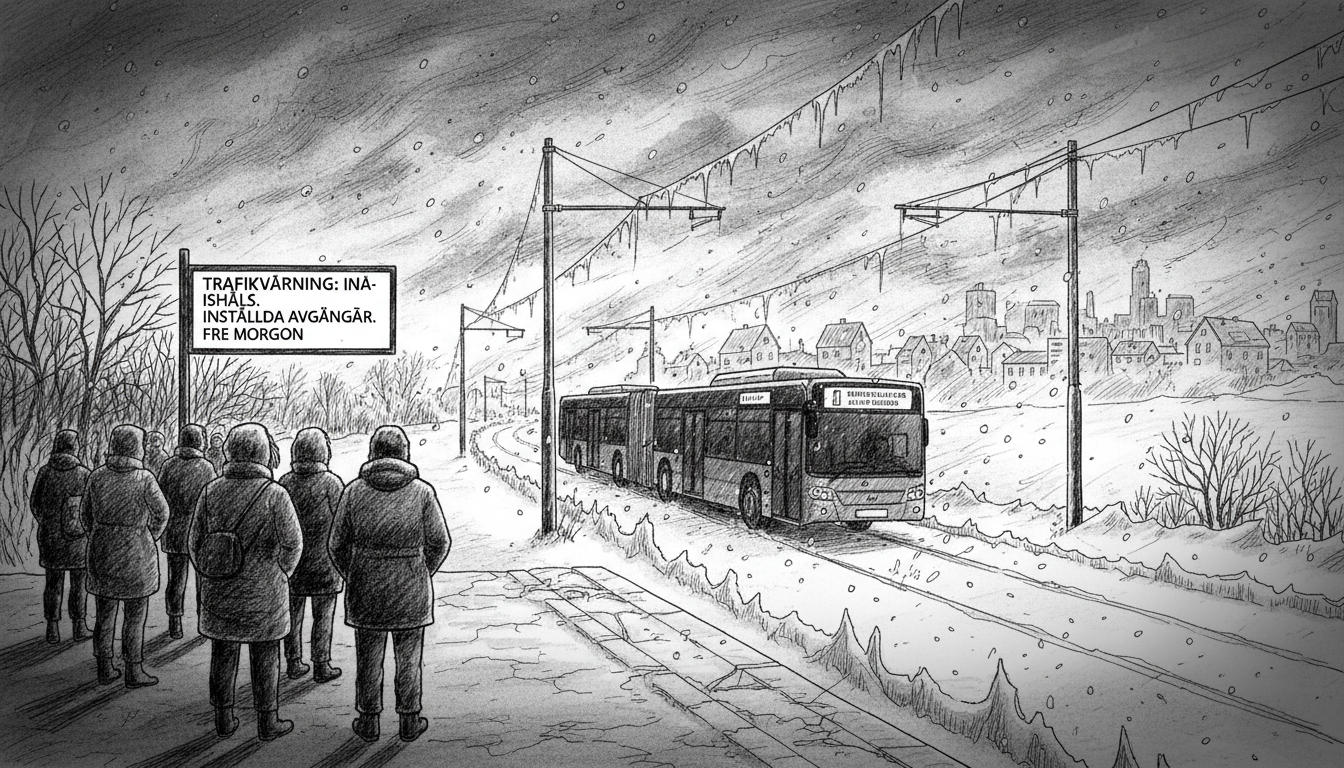Swedish meteorological authorities have issued a sudden ice warning for central Norrland regions including Sundsvall, Östersund, and Umeå. The yellow alert covers Friday morning from 03:00 to 12:00 local time. Road safety officials urge drivers to exercise extreme caution during this period.
Transport infrastructure represents a critical government policy Sweden must maintain year-round. The Swedish government allocates substantial resources to weather preparedness through agencies like the Swedish Meteorological and Hydrological Institute. This sudden ice event tests the nation's emergency response systems during challenging winter conditions.
Meteorological officials stated all travelers should adjust speeds to match road conditions. They recommend allowing extra time for journeys throughout the affected regions. Public transport services may experience delays or cancellations during the warning period.
The Riksdag decisions on infrastructure maintenance directly impact how Sweden handles such weather emergencies. Parliament recently debated winter road maintenance funding in the government districts surrounding Rosenbad. These policy discussions determine resource allocation for northern regions facing regular winter hazards.
Central Norrland's topography creates unique challenges for transportation officials. The area combines coastal and inland climates that produce unpredictable ice formation. Similar weather patterns affected the region during the same period last year, causing multiple traffic incidents.
Stockholm politics often overlooks northern transportation needs according to regional representatives. The Swedish Parliament faces ongoing debates about equitable infrastructure funding distribution. Northern municipalities consistently argue for greater winter maintenance resources during budget negotiations.
International residents and visitors should monitor local weather updates throughout Friday. Sweden's transportation systems generally maintain high reliability standards despite weather challenges. The country's extensive preparation for winter conditions typically minimizes major disruptions.
Emergency services remain on heightened alert throughout the warning period. Road maintenance crews will prioritize major highways and public transport routes. Travelers should verify departure times before beginning journeys in affected areas.
This weather event demonstrates Sweden's sophisticated emergency warning systems in action. The coordinated response between meteorological services and transportation authorities reflects years of policy development. Such incidents test the practical implementation of Riksdag decisions about national infrastructure protection.
Regional development remains a persistent topic in Swedish government discussions. Northern transportation reliability affects economic activity and quality of life. These periodic weather emergencies highlight the ongoing need for infrastructure investment beyond major urban centers.
Sweden's approach to weather emergencies combines advanced forecasting with practical public guidance. The system aims to balance precaution with maintaining normal activity levels. This philosophy reflects broader Swedish policy approaches to risk management and public safety.

